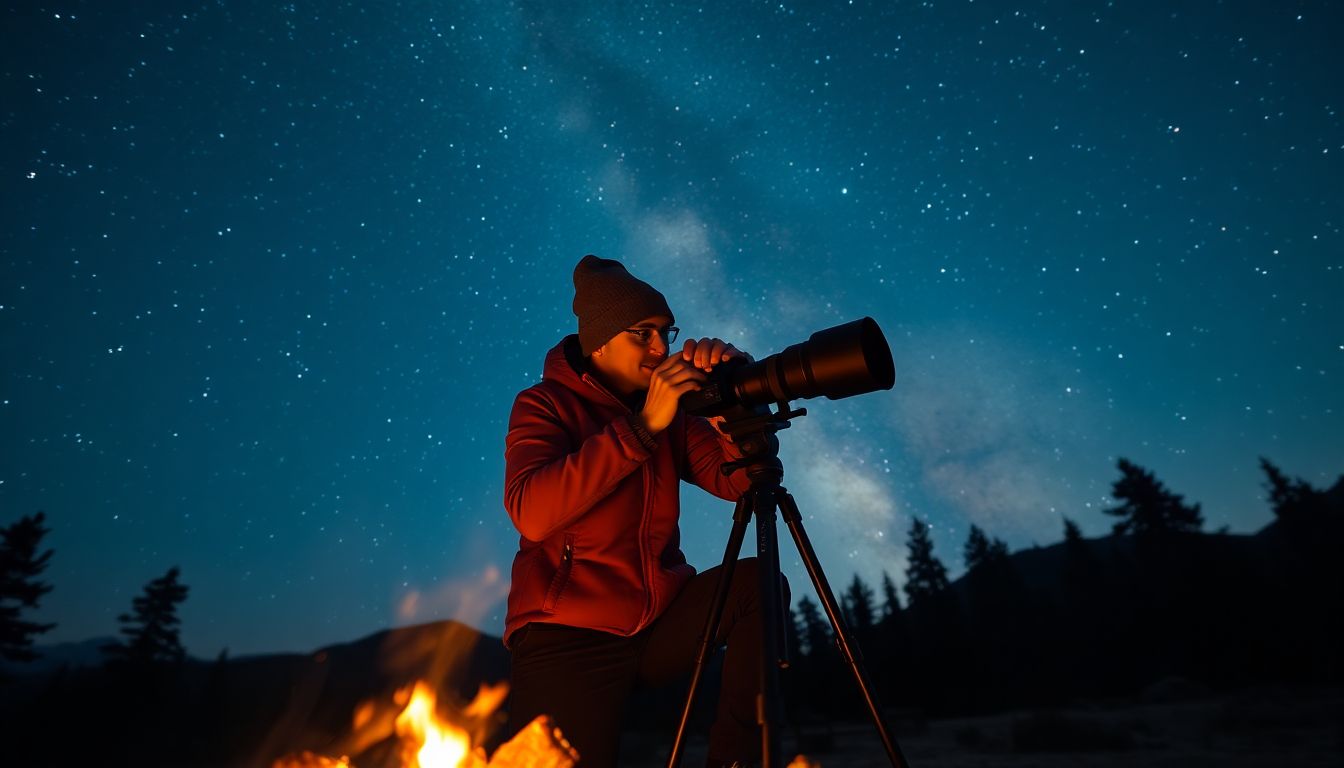
Easy Guide to Choosing a Good Astro Lens on a Budget
Introduction
Astrophotography is booming. More people want to shoot stunning night sky photos at home. But finding the right camera lens can feel overwhelming. You don’t need to spend a fortune to get great shots. Picking the right lens on a budget is possible with some smart choices. This guide will help you find an affordable astro lens that delivers excellent results. You’ll learn what to look for and which lenses stand out for your wallet.
Understanding the Basics of Astro Lenses
What is an Astro Lens?
An astro lens is a camera lens built specifically for night sky photos. It helps gather more light from stars, planets, and the Milky Way. Unlike regular lenses, astro lenses are designed to shoot in very low light. They let you capture clear, bright images of the night sky even with a simple camera setup.
Key Features to Look For
- Aperture size (f/number): The lower the f/number, the more light the lens gathers. For astro work, look for lenses with f/2.8 or lower.
- Focal length: Wide-angle lenses, usually between 14mm and 24mm, are perfect for stars and the Milky Way. They cover more sky in a single shot.
- Maximum aperture: A large max aperture means better night photos. Zoom lenses may have variable apertures which can change. For astrophotography, fixed apertures are better.
Common Misconceptions
Many believe only expensive lenses work for astrophotos. That’s not true. Affordable lenses can do a great job if you choose wisely. It’s about matching the lens features to your needs, not spending a lot. Don’t assume cost equals quality in astrophotography.
Essential Factors to Consider When Buying an Astro Lens on a Budget
Budget Constraints and Priorities
Set a clear price range first. Expect to spend somewhere between $150 and $400 for a good budget lens. Focus on important features like aperture and focal length. Avoid overspending on unnecessary zooms or bells and whistles you won’t use.
Aperture Size and Light Gathering Ability
A bigger aperture (smaller f/number) lets in more light, which is key in dark skies. For tight budgets, look for lenses with at least f/2.8. Some popular budget options offer this aperture at prices that won’t break the bank.
Focal Length and Field of View
Wide-angle lenses (below 24mm) let you capture large portions of the night sky. They’re fantastic for star trails and the Milky Way. Balancing focal length with camera compatibility is important. Ensure your camera mount fits the lens.
Lens Compatibility and Mount Types
Make sure the lens fits your camera’s mount—whether it’s Canon, Nikon, Sony, or another brand. Used lenses can be a good deal, but double-check compatibility first. Buying from reputable sellers often gives peace of mind.
Image Stabilization and Manual Focus
Image stabilization isn’t essential for astrophotography, but it can help with daytime shots. Manual focus is preferred for night sky photos since autofocus often struggles in low light. Budget-friendly manual lenses are widely available and effective.
Top Budget-Friendly Astro Lenses in 2023
Wide-Angle Prime Lenses
Popular options include Rokinon and Samyang lenses. These are manual focus but offer excellent apertures, like f/2.0 or f/2.8. They’re super affordable and highly rated by amateur astrophotographers. For example, the Rokinon 24mm f/1.4 is a favorite for its bright aperture and wide field of view.
Standard Zoom Lenses
While fixed prime lenses are often better for astro work, some budget zooms perform well. Check for lenses with a large maximum aperture, like f/3.5-4.5, and try to get the widest setting you can afford. These give versatility for different shooting scenarios.
Adaptable Lenses for Multiple Cameras
Some lenses work across multiple brands. For instance, third-party lenses for Sony E-mount, Canon EF-M, or Nikon Z-mount. Buying used can cut costs significantly. Always verify the lens’s condition and compatibility before purchase.
Real-World Examples and User Experiences
Many users have successfully used budget lenses like the Samyang 14mm f/2.8 or Rokinon 12mm f/2 to capture impressive star trails. Review forums and astrophotography groups are full of tales about affordable gear that produces stunning images. The key? Patience and practice.
Tips for Maximizing Your Astrophotography Results on a Budget
Using Tripods and Remote Shutters
A sturdy tripod is the backbone of good night photos. Shake ruins stars. Remote shutters or timers prevent camera shake during long exposures. You don’t need to spend much—solid tripods can be found for under $50.
Post-Processing Techniques
Enhance your shots with free software like DeepSkyStacker or GIMP. Adjust brightness, contrast, and reduce noise. This can make even modest images look impressive. Post-processing is where you pull the most detail from your photos.
Shooting Tips with Budget Lenses
Shoot during clear nights with minimal moonlight. Use the widest aperture and keep exposure times between 15 and 30 seconds to avoid star trails—unless that’s your goal. Focus manually on a distant bright star or planet for sharp images.
Maintaining and Caring for Your Lenses
Protect your gear from dust and scratches. Use lens caps and clean your lenses with proper cloths. Outdoor shooting can expose lenses to moisture and dirt. Proper care keeps your equipment sharp and ready.
Conclusion
Choosing a good astro lens without overspending is all about knowing what matters. Focus on large apertures and wide-angle views. You don’t need the most expensive gear — just the right one for your budget. Start with an affordable lens, learn your craft, and upgrade over time. Passion, patience, and practice will help you take stunning night sky images that wow. Whether you’re shooting the stars or the Milky Way, affordability shouldn’t hold you back from exploring the universe’s beauty. Keep experimenting, and your best shots are ahead.

